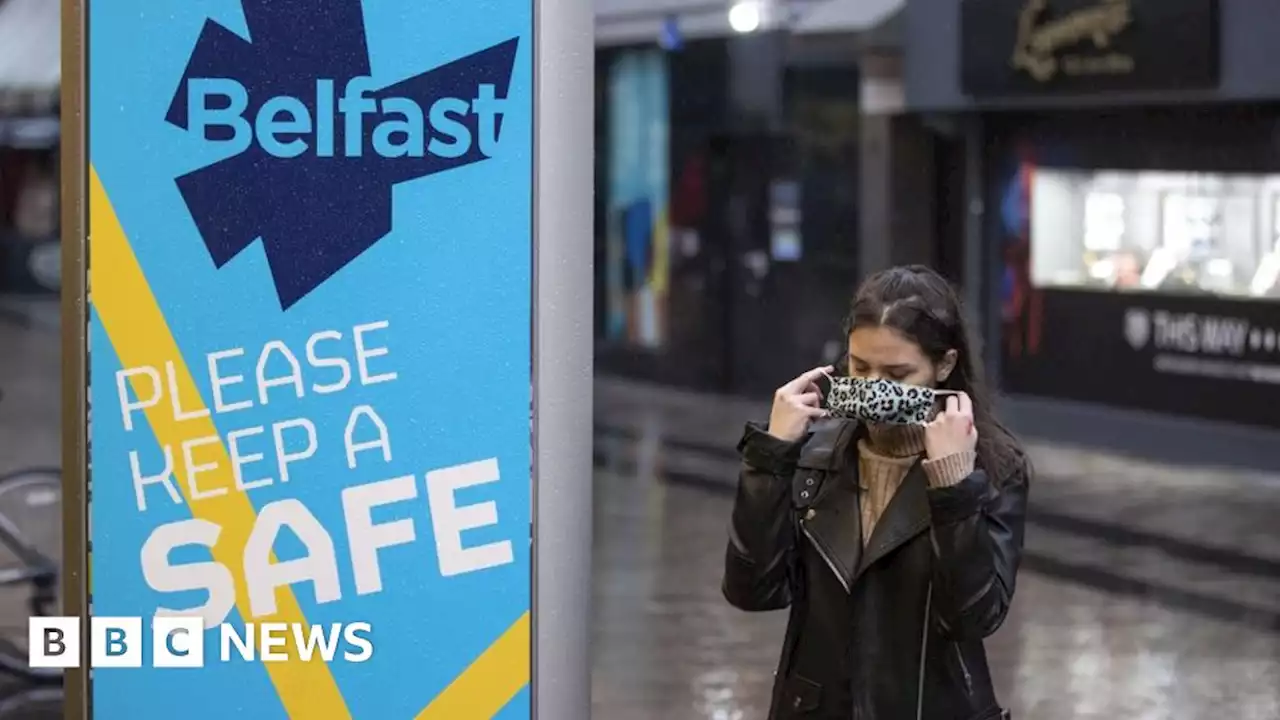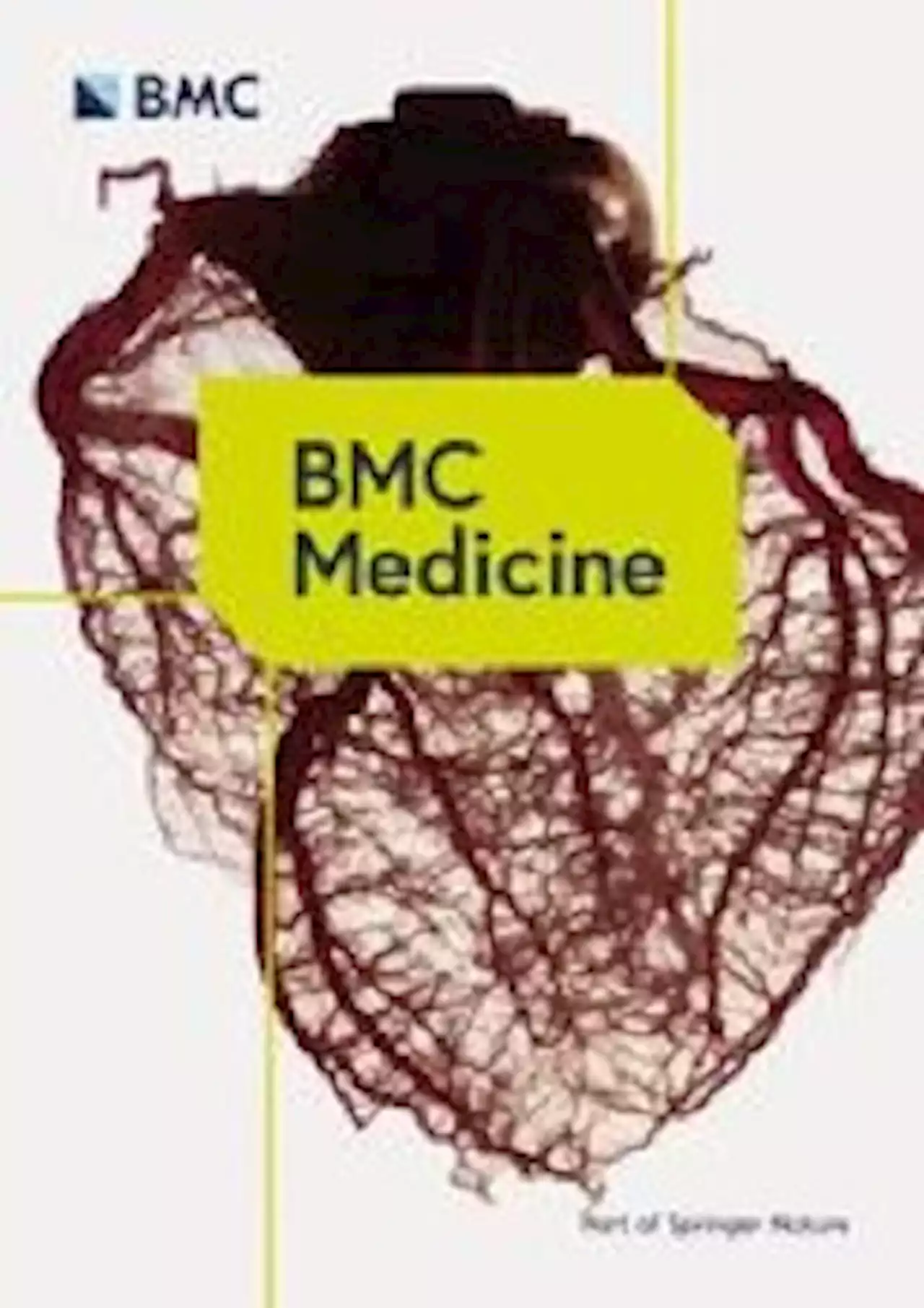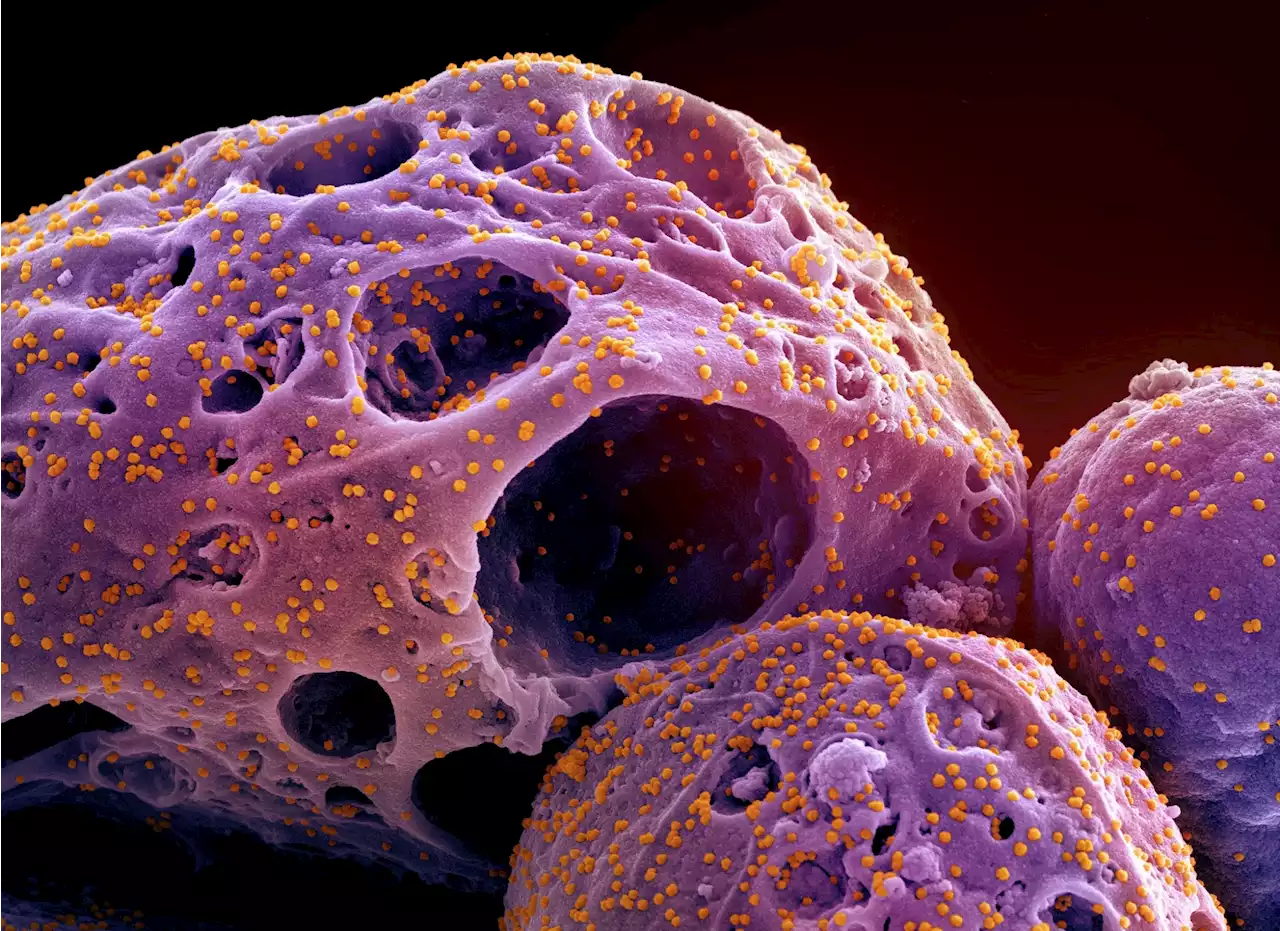Political divide and public opinion influence racial disparities in COVID-19 mortality Mortality Coronavirus Disease COVID PLOSONE UWMadison UCLA
By Neha MathurNov 3 2022Reviewed by Danielle Ellis, B.Sc. In a recent study published in PLOS One, researchers at the University of Wisconsin-Madison and the University of California-Los Angeles investigated how political polarization in the United States shaped the time-varying patterns of racial inequality in coronavirus disease 2019 mortality since the onset of the pandemic.
Initial explanations for COVID-19 racial disparities highlighted the role of static factors, such as historical racial segregation in the US and geography, which are inherently inadequate to explain observed time-varying patterns in racial inequality. They acquired weekly data for each US state from Oxford University's COVID-19 government response tracker from May 2021. The team used this data to capture temporal and geographic variation in race-based COVID-19 mortality, total mortality patterns, adherence to policy adoptions, and oscillations in public opinion on both sides of the partisan alley.
The results also pointed out that the political divide in concern over COVID-19 was a significant causal factor in driving the COVID-19 race-based mortality patterns. As this grew through the pandemic, racial inequality in COVID-19 mortality decreased, but white American deaths increased.
United Kingdom Latest News, United Kingdom Headlines
Similar News:You can also read news stories similar to this one that we have collected from other news sources.
 Covid-19: Nearly 5,000 Covid-related deaths registered, inquiry toldGroup calls for Covid-19 public inquiry to consider why Ireland was not considered single land mass during pandemic response Covid19
Covid-19: Nearly 5,000 Covid-related deaths registered, inquiry toldGroup calls for Covid-19 public inquiry to consider why Ireland was not considered single land mass during pandemic response Covid19
Read more »
 Frontiers | SARS-CoV-2 specific antibody trajectories in mothers and infants over two months following maternal infectionInfants exposed to caregivers infected with SARS-CoV-2 may have heightened infection risks relative to older children due to their more intensive care and feeding needs, and may experience more severe infection due to their less developed immune systems. However, there has been limited research on COVID-19 outcomes in exposed infants beyond the neonatal period. Between June 2020 – March 2021, we conducted interviews and collected capillary dried blood from SARS-CoV-2 infected mothers and their infants (aged 1-36 months) for up to two months following maternal infection onset (COVID+ group, 87% breastfeeding, n dyads=46 dyads). Comparative data were also collected from breastfeeding mothers with no known SARS-CoV-2 infection or exposures (breastfeeding control group, n dyads=26), and mothers who tested SARS-CoV-2 negative after experiencing symptoms or close contact exposure (COVID- group, n dyads=11, 73% breastfeeding). Dried blood samples were assayed for anti-SARS-CoV-2 S-RBD IgG and IgA positivity and anti-SARS-CoV-2 S1 + S2 IgG concentrations. Within the COVID+ group, the mean probability of seropositivity among infant samples was significantly lower than that of corresponding maternal samples (IgG 0.54 vs. 0.87; IgA 0.33 vs. 0.85), with likelihood of infant infection positively associated with the number of maternal symptoms and other household infections reported. COVID+ mothers reported a lower incidence of COVID-19 symptoms among their infants as compared to themselves and other household adults, and infants had similar PCR positivity rates as other household children. No samples returned by COVID- mothers or their infants tested antibody positive. Among the breastfeeding control group, 44% of mothers but none of their infants tested antibody positive in at least one sample. Results support previous research demonstrating minimal risks to infants following maternal COVID-19 infection, including for breastfeeding infants.
Frontiers | SARS-CoV-2 specific antibody trajectories in mothers and infants over two months following maternal infectionInfants exposed to caregivers infected with SARS-CoV-2 may have heightened infection risks relative to older children due to their more intensive care and feeding needs, and may experience more severe infection due to their less developed immune systems. However, there has been limited research on COVID-19 outcomes in exposed infants beyond the neonatal period. Between June 2020 – March 2021, we conducted interviews and collected capillary dried blood from SARS-CoV-2 infected mothers and their infants (aged 1-36 months) for up to two months following maternal infection onset (COVID+ group, 87% breastfeeding, n dyads=46 dyads). Comparative data were also collected from breastfeeding mothers with no known SARS-CoV-2 infection or exposures (breastfeeding control group, n dyads=26), and mothers who tested SARS-CoV-2 negative after experiencing symptoms or close contact exposure (COVID- group, n dyads=11, 73% breastfeeding). Dried blood samples were assayed for anti-SARS-CoV-2 S-RBD IgG and IgA positivity and anti-SARS-CoV-2 S1 + S2 IgG concentrations. Within the COVID+ group, the mean probability of seropositivity among infant samples was significantly lower than that of corresponding maternal samples (IgG 0.54 vs. 0.87; IgA 0.33 vs. 0.85), with likelihood of infant infection positively associated with the number of maternal symptoms and other household infections reported. COVID+ mothers reported a lower incidence of COVID-19 symptoms among their infants as compared to themselves and other household adults, and infants had similar PCR positivity rates as other household children. No samples returned by COVID- mothers or their infants tested antibody positive. Among the breastfeeding control group, 44% of mothers but none of their infants tested antibody positive in at least one sample. Results support previous research demonstrating minimal risks to infants following maternal COVID-19 infection, including for breastfeeding infants.
Read more »
 Health-related quality of life among persons with initial mild, moderate, and severe or critical COVID-19 at 1 and 12 months after infection: a prospective cohort study - BMC MedicineBackground Currently, there is limited evidence about the long-term impact on physical, social and emotional functioning, i.e. health-related quality of life (HRQL) after mild or moderate COVID-19 not requiring hospitalization. We compared HRQL among persons with initial mild, moderate or severe/critical COVID-19 at 1 and 12 months following illness onset with Dutch population norms and investigated the impact of restrictive public health control measures on HRQL. Methods RECoVERED, a prospective cohort study in Amsterdam, the Netherlands, enrolled adult participants after confirmed SARS-CoV-2 diagnosis. HRQL was assessed with the Medical Outcomes Study Short Form 36-item health survey (SF-36). SF-36 scores were converted to standard scores based on an age- and sex-matched representative reference sample of the Dutch population. Differences in HRQL over time were compared among persons with initial mild, moderate or severe/critical COVID-19 using mixed linear models adjusted for potential confounders. Results By December 2021, 349 persons were enrolled of whom 269 completed at least one SF-36 form (77%). One month after illness onset, HRQL was significantly below population norms on all SF-36 domains except general health and bodily pain among persons with mild COVID-19. After 12 months, persons with mild COVID-19 had HRQL within population norms, whereas persons with moderate or severe/critical COVID-19 had HRQL below population norms on more than half of the SF-36 domains. Dutch-origin participants had significantly better HRQL than participants with a migration background. Participants with three or more COVID-19 high-risk comorbidities had worse HRQL than part participants with fewer comorbidities. Participants who completed the SF-36 when restrictive public health control measures applied reported less limitations in social and physical functioning and less impaired mental health than participants who completed the SF-36 when no restrictive measures applied. Co
Health-related quality of life among persons with initial mild, moderate, and severe or critical COVID-19 at 1 and 12 months after infection: a prospective cohort study - BMC MedicineBackground Currently, there is limited evidence about the long-term impact on physical, social and emotional functioning, i.e. health-related quality of life (HRQL) after mild or moderate COVID-19 not requiring hospitalization. We compared HRQL among persons with initial mild, moderate or severe/critical COVID-19 at 1 and 12 months following illness onset with Dutch population norms and investigated the impact of restrictive public health control measures on HRQL. Methods RECoVERED, a prospective cohort study in Amsterdam, the Netherlands, enrolled adult participants after confirmed SARS-CoV-2 diagnosis. HRQL was assessed with the Medical Outcomes Study Short Form 36-item health survey (SF-36). SF-36 scores were converted to standard scores based on an age- and sex-matched representative reference sample of the Dutch population. Differences in HRQL over time were compared among persons with initial mild, moderate or severe/critical COVID-19 using mixed linear models adjusted for potential confounders. Results By December 2021, 349 persons were enrolled of whom 269 completed at least one SF-36 form (77%). One month after illness onset, HRQL was significantly below population norms on all SF-36 domains except general health and bodily pain among persons with mild COVID-19. After 12 months, persons with mild COVID-19 had HRQL within population norms, whereas persons with moderate or severe/critical COVID-19 had HRQL below population norms on more than half of the SF-36 domains. Dutch-origin participants had significantly better HRQL than participants with a migration background. Participants with three or more COVID-19 high-risk comorbidities had worse HRQL than part participants with fewer comorbidities. Participants who completed the SF-36 when restrictive public health control measures applied reported less limitations in social and physical functioning and less impaired mental health than participants who completed the SF-36 when no restrictive measures applied. Co
Read more »
 Bivalent mRNA booster broadens humoral immunity against SARS-CoV-2 Omicron subvariantsResearchers at Emory University, Stanford University, and the National Institute of Allergy and Infectious Diseases evaluated whether bivalent coronavirus disease 2019 (COVID-19) boosters conferred protection against new Omicron subvariants.
Bivalent mRNA booster broadens humoral immunity against SARS-CoV-2 Omicron subvariantsResearchers at Emory University, Stanford University, and the National Institute of Allergy and Infectious Diseases evaluated whether bivalent coronavirus disease 2019 (COVID-19) boosters conferred protection against new Omicron subvariants.
Read more »
 Patients with cancer, suppressed immune system at high risk for severe COVID if treated with systemic drug therapiesPatients with cancer and a weakened immune system who are treated with immunotherapies tend to fare far worse from COVID-19 than those who haven't received such therapies in the three months before their COVID diagnosis, show findings in a new study by researchers at Dana-Farber Cancer Institute, and across the U.S., Canada and Mexico. Researchers found worse outcomes in both the disease itself as well as the fierce immune response that sometimes accompanies it.
Patients with cancer, suppressed immune system at high risk for severe COVID if treated with systemic drug therapiesPatients with cancer and a weakened immune system who are treated with immunotherapies tend to fare far worse from COVID-19 than those who haven't received such therapies in the three months before their COVID diagnosis, show findings in a new study by researchers at Dana-Farber Cancer Institute, and across the U.S., Canada and Mexico. Researchers found worse outcomes in both the disease itself as well as the fierce immune response that sometimes accompanies it.
Read more »
